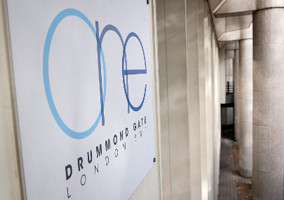Baroness Stowell, chair of the Charity Commission has said repeatedly that it is not the Commission's job to educate the public about charities. Its job is to tell charities what the public expects and wants from them. That's the core of its new statement of strategic intent.
Therein lies a paradox. For the Commission's own research reveals that the public in general don't know what charities are.
Let us recall the Charity Commission's publication of research by Populus in July 2018. A sample of over 2,000 members of the public were asked what the word "charities" brought to mind. The result was a grand total of about nine named charities, all big national names, obviously led by Oxfam, in the wake of the scandal. The sample mentioned only limited categories of charities: mainly medical/cancer, children and animals. Populus commented: "Very few respondents immediately thought of local charities [ie the overwhelming majority of all charities in real life], educational organisations or cultural institutions."
They might have added, nor did respondents think of religious charities (one in six or so of all charities), environmental, community development or human rights charities either. Populus add: "This context must be borne in mind when interpreting public trust in charities".
Subsequent Populus focus group research for the Commission found exactly the same: "It was large, household names which they first thought of when appraising the sector", Populus report. No surprise there, so that might leave about 167,990 others.
There is also evidence of what the chair has described as "so-called myths": "at best, they (the focus groups) thought that large charities wasted vast amounts on unnecessary bureaucracy, and at worst, they felt that many were mechanisms for enriching senior charity workers that went against the spirit of charity". And as one group member put it, "What can be quite disconcerting is when 80 per cent of the donations are going to administration, so less than 20 per cent of the pound is going to the cause on the ground".
People don’t know how broad the sector is
Perhaps the biggest problem in basing the strategic intent too heavily on public attitudes towards charities, as explored in such research, is that very many of our fellow citizens don't know that churches and other faith institutions are charities.
They don't know that universities and lots of schools are charities. They don't know that theatres, operas, great concert halls are charities; nor many think tanks, professional associations, hospitals, gyms, many sorts of sports organisations and fitness centres.
They don't know much about the far greater multitudes of small local charities. When the researchers for the Charity Commission ask people how many times they have received a service from a charity in the recent past, they give a quite low figure, but when a list of actual charities is put before them, that figure leaps to a far higher one. That is just one indicator of the knowledge gap, which is freely admitted by the Commission's researchers, but which the Commission's leadership seems reluctant to acknowledge publicly.
They have been making too many generalisations about what "the public" expect of "charities" in general, without the necessary caveats and qualifications. According to the chair it isn't the job of the Commission - even, apparently, if it would help public trust and confidence in charities - to dispel public misconceptions or myths as to what "charities" are and what they are like.
Indeed, the Chair has at times appeared to deny that such myths and misconceptions exist - notwithstanding the Commission's own research. In her world, every criticism by a sample of the public of the tiny, distorted sample of charities known to most of them, represents a direct and compelling challenge to charities in general to change their behaviour.
Even charities themselves should, she implies, stop trying to explain the realities of their lives better and change their ethos and behaviour instead. If such statements are supposed to be shaped by the Commission's research into public opinion, it is in my view a one-eyed reading of the research, ignoring its inherent limitations and loading onto it oversimplified generalisations about our vast sector that the research will not properly bear.
The same is true of the over-heated suggestion that "the writing is on the wall" for registered charities (in general, apparently) unless they change their ethos and behaviour.
Understand the limitations of research
When such points are made, it is facile to accuse charity insiders of evading inconvenient truths, as the chief executive has done. Stubborn evidence of the limited knowledge and misconceptions of many of the public are indeed inconvenient truths for the Commission's leadership on is current rhetorical trajectory.
I am not one of those who deny any useful role for research into public attitudes, especially for a body whose duties include promoting public confidence and trust in charities.
There are insights from the Populus research which, carefully handled and merged with the Commission's wide experience and knowledge, with data on giving and volunteering, with common sense and, crucially, the requirements of charity law and public benefit, can reinforce a strategy to enhance long term public trust and confidence in charities.
I have no significant criticism of most of the research itself, but its limitations need to be scrupulously acknowledged. Otherwise, a rickety rhetorical superstructure can distract from the sound elements of the base, and, more importantly, from the vitally important work that the Commission actually accomplishes for the public good day in, day out.
Related articles












